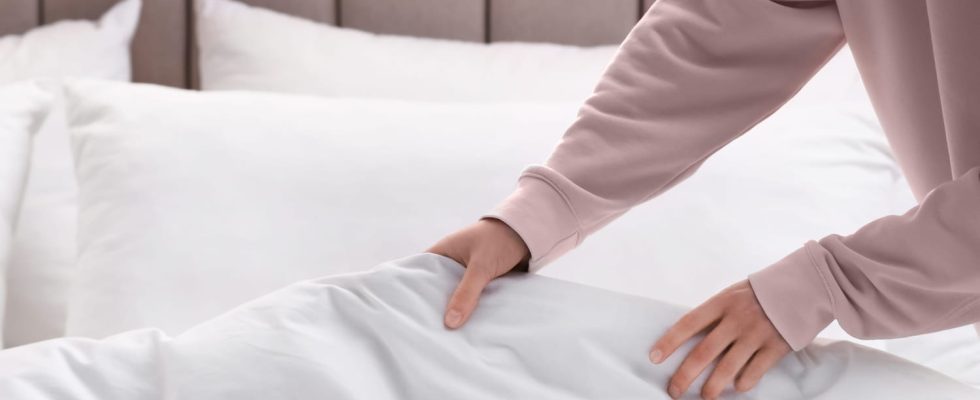A cardiologist advises against making your bed in the morning and reveals why this harmless action is bad for your health.
Making your bed, ideally square, is one of the habits that we instill from a very young age. However, this morning gesture would not be such a good idea… “The lazy people will be happy: don’t make your bed in the morning“, immediately insists Dr. Louis Bendayan, cardiologist and founder of the account”Dr Tik_Tok” to 1.3 million subscribers.
“You don’t sleep alone!”
“Leave it in this statehe continues. Your health will thank you because even if you don’t have a partner, know that you don’t sleep alone ! Indeed, there are millions of mites sleeping with you“. So if you close the sheet or comforter on the mattress, you keep the heat and humidity released by the body during the night, which, added to poor ventilation, promotes the reproduction and proliferation of mites in the mattress, bed linen and pillows, explains the cardiologist. What had already been shown a study carried out by researchers from the immunology center at Kingston University in England. And it’s well known: these microscopic beasts that feed on our dead skin can cause health risks such as dermatological problems, allergieseczema, breathing difficulties and asthma.
You should therefore not make your bed after getting up, but leave the sheet or duvet undone, lying on the edge of the bed by opening your shutters and ventilating your room at least 10-15 minutes. Air renewal and exposure to daylight will allow humidity and heat to evaporate, thus making the environment inhospitable for mites. If the need to make your bed is really too strong, you can possibly do it at the end of the morning, or even a few hours before bed. Finally, change the sheets at a minimum once a week and wash them at high temperature (at least 60°C), recommends the cardiologist. The duvet and pillows should be washed at least twice a year, ideally at each change of season. It is also possible to put an anti-mite cover under your sheet. without any acaricidal chemical treatmentpreferably Oeko-Tex® certified or recommended by the French Association for the Prevention of Allergies (AFPRAL).
